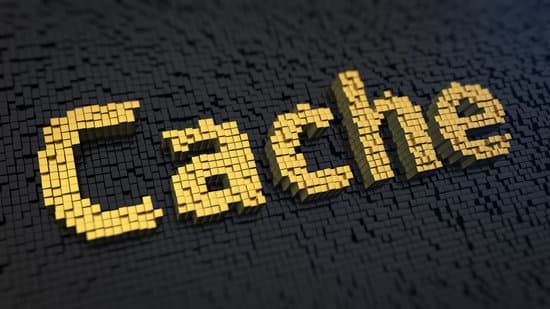
Forget Bitcoin, in the digital world “cache” is still king!
That’s right, if you need to Google why your Gen Z offspring want you to put your 401K in Apecoin or some other trendy cryptocurrency, cache is there to greatly enhance your user experience and the performance of web pages you visit.
Cache is a memory area on your machine’s hard drive where your internet browser stores “static assets” or files that rarely change, such as logos or navigation bars, which help save you time when visiting websites.
Zoom! Zoom! Cache Helps Your Web Pages Load Faster
“The cache is like a storage locker for assets from web sites and apps that you visit, where items are stored to facilitate faster loading when you return to that URL,” says Essential Designs. “That stored information allows for a much faster user experience and uses less internet bandwidth during the session.”
Both web designers and developers, as well as your inbound marketing team, love fast-loading pages and loathe “page loading” animations.
And while we are at it, they would also appreciate it if you stopped pronouncing “cache” as “cash-ay”.
“A cache is a group of things that are hidden and is pronounced like cash,” says our friends at Merriam-Webster. “Cachet, [on the other hand], can mean prestige, medicine to be swallowed, or an official seal, and is pronounced “cash-ay”.”
Difference Between Cache and Cookies
Cache might sound a bit like the browsing hot-button topic of cookies, but they are two different forms of temporary storage kept on your device to improve your user experience and performance of web pages you visit.
“Although both of them store data on the client's machine, they serve different purposes,” writes Danish Kamran on Medium.
Kamran explains three fundamental differences between cookies and cache:
- Cookies typically expire after a certain time, but cache are usually kept on your machine until they are removed manually
- Cookies store information such as user preferences, while cache will keep resource files such as audio, video, and flash files
- A cookie's main objective is to store information to track different characteristics related to the user, while cache is used to make loading of web pages faster
Benefits of Cache on Your Browser Experience
Those static assets that are stored on your machine’s cache can include:
- Images such as photos, logos, artwork, background
- HTML
- JavaScript
- CSS
“What to cache and for how long is determined by the website. Some assets are removed from your machine in a few days while others may remain in your cache for up to a year,” says BigCommerce. “The benefits of browser caching far outweigh the risks. Good firewalls, virus scanners and common sense are all you need to keep your machine safe.”
BigCommerce says the benefits of cache include:
- Caching improves and speeds up browsing because retrieving a file from your hard drive is always faster than fetching it from a remote server
- Ecommerce experiences are improved as large JavaScript files – needed for shopping carts, wish lists and interactive images – are stored on your hard drive.
- Mobile devices can be limited by bandwidth, so cache helps those with data plans with bandwidth caps and charges by not downloading the same static information each time
“Imagine how conversion rates would be negatively impacted if a user had to wait five to ten seconds for a “Buy Now” button to appear beneath a product,” says BigCommerce. “A fast, fluid browsing experience is essential to making customers feel comfortable and encourage conversions. In addition, the next time you visit the cached ecommerce site, those assets will still be available on your device for faster loading.”
For your business, another big bonus of cache is that it reduces the back-end load on your server, saving you on hosting costs. Without the ability to cache, many websites would slow to a crawl or crash without larger files cached.
Sometimes, However, You Have to Cache In …
There comes a time, however, when most of us need to “cache in '' or clear out the cache.
The University of Wisconsin-Madison information technology department says that “clearing your cache and cookies from time to time is good “tech hygiene” and it can help you troubleshoot when your device is running slowly or you’re having trouble with an app.”
Clearing your cache can also help you see changes that have been made to some webpages and their static assets, which may still be loading from your hard drive vs. new iterations hosted on remote servers.
CNET says that if your iPhone is feeling a bit sluggish when browsing, then it might be time to clear your smartphone’s cache.
“Things become less convenient when your browser's cache gets outdated, and the data being retrieved no longer matches the data actually being used on the website,” says CNET. “The result? Slower load speeds and wonky website formatting. That's why clearing your cache can help: It gives sites a fresh start in your browser and frees up some space in your storage.”
Just remember, that after you clear your cache on any machine, when you visit your favorite web pages again, they will think it is your first ever visit and you will have to be prepared for some wait time for everything to load.
After that, however, you can expect a much richer browsing experience, and you can thank, naturally, your cache for that.
